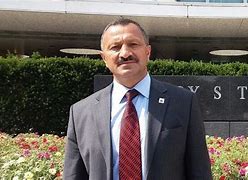By Tofiq Yaqublu. This is an author’s piece, presented to readers in abridged form.
Tofiq Yaqublu, a detained member of the National Council and Musavat Party, writes that his most recent arrest was directly linked to his critical views on the Azerbaijani government’s handling of peace talks with Armenia and broader regional geopolitics. He stresses that, like all classic authoritarian regimes, the Ilham Aliyev government seeks to silence critical voices, whether they come from the opposition, independent journalists, or civil society activists.
Yaqublu argues that Azerbaijan’s demand for Armenia to remove clauses from its constitution that imply territorial claims over Azerbaijani land is legitimate, but making this a prerequisite for signing a peace treaty is a misguided move that only delays peace and fuels populism. He points out that any future revanchist forces in Armenia could always find new pretexts for aggression, regardless of what is written in the constitution.
He advocates for a peace treaty with international guarantees, noting that in the event of a breach, Azerbaijan would secure broader global support. Yaqublu warns that the delay in finalizing a peace agreement emboldens Armenian revanchists who hope that not all is lost.
The author also challenges the portrayal of the November 10 ceasefire statement as a capitulation by Armenia, highlighting that this document contains obligations for Azerbaijan — such as the provision of the Lachin corridor — without corresponding concrete guarantees in Azerbaijan’s favor.
Yaqublu is critical of the government’s rhetoric around the so-called Zangezur Corridor, describing threats to seize it by force as reckless, given that this issue could have been resolved through diplomacy and included in prior agreements.
He further highlights the inconsistency of portraying France and the EU as enemies while framing Russia as a strategic ally — despite Russia’s historical support for Armenia’s occupation of Azerbaijani lands. According to Yaqublu, the EU’s presence, particularly through its border monitoring mission, could provide the region with much-needed security guarantees.
Lastly, Yaqublu critiques the government’s use of the Western Azerbaijan Community to advance populist claims over Armenian territory, arguing that such rhetoric is unrealistic and only gives Armenia grounds to accuse Azerbaijan of territorial ambitions. He concludes that genuine peace and stability in the region will only come through adherence to international law and serious diplomacy — not hollow slogans and aggressive posturing.

